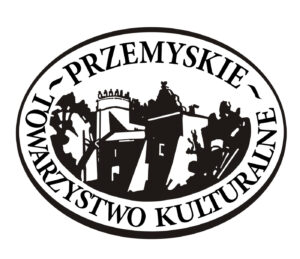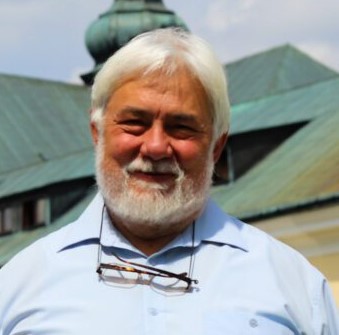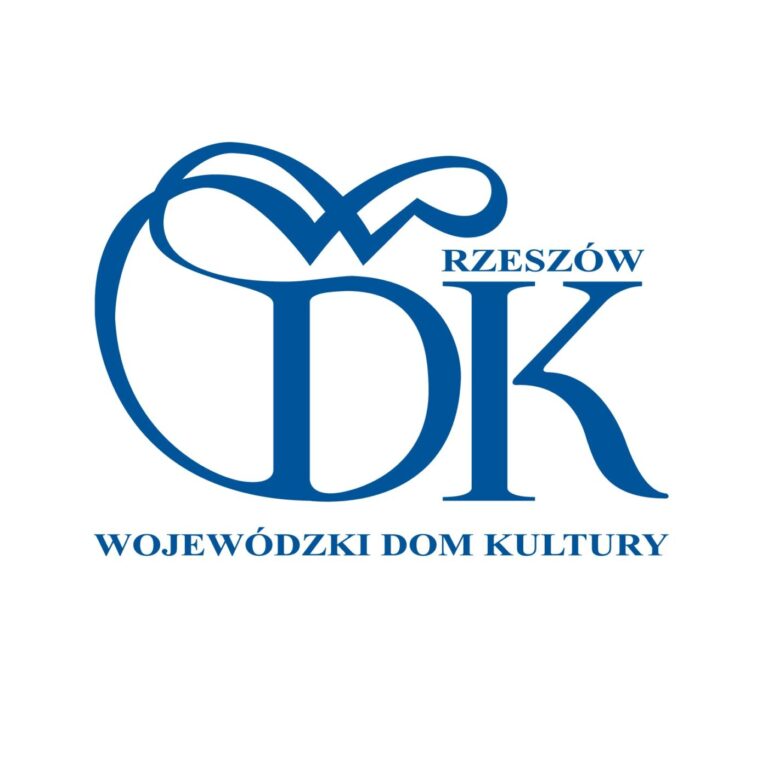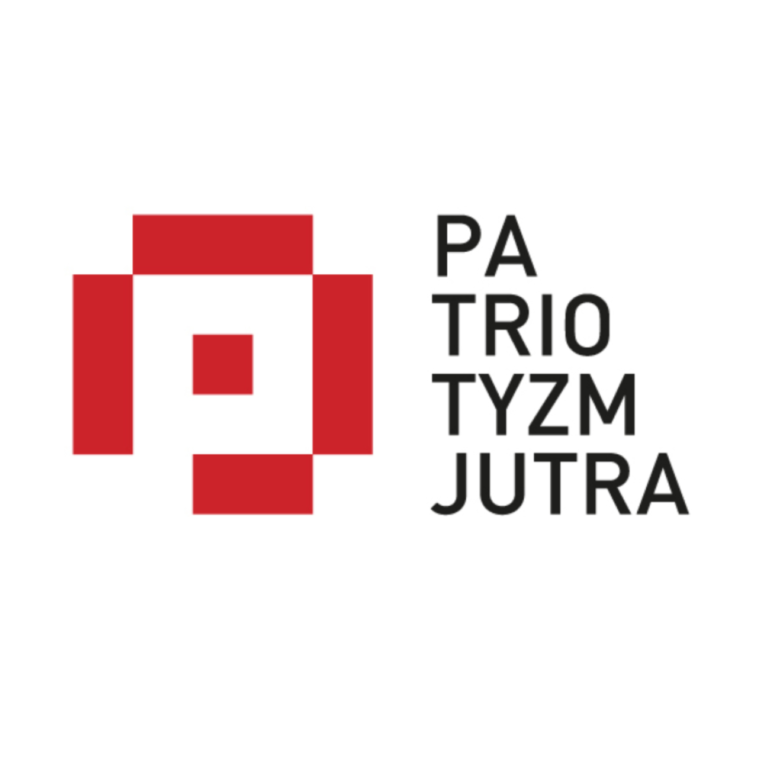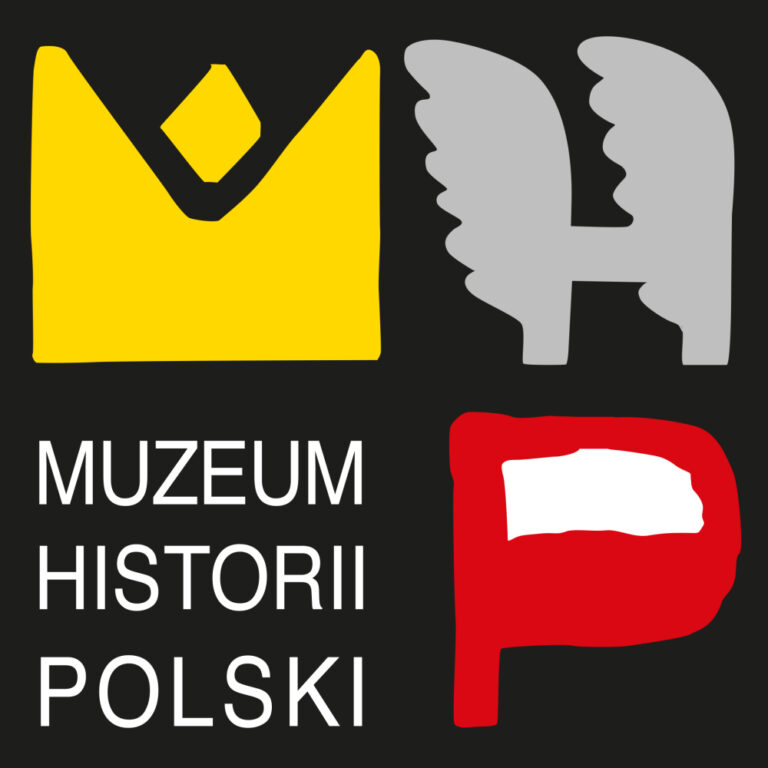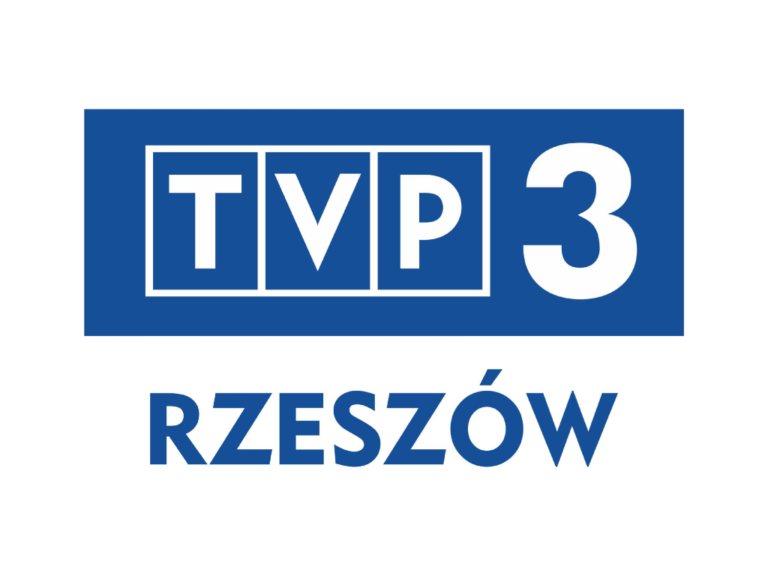As free with free and equal with equal
A conversation with Dr. Imre Molnar, Hungarian historian, sociologist, writer, diplomat, and expert on Polish affairs. June 13, 2022.
The conversation was recorded in Budapest, where a panel discussion on Polish-Hungarian relations took place as part of the inauguration of the Carpathian Europe Clubs at the Scruton Café. Participants included Ryszard Terlecki, Deputy Speaker of the Sejm of the Republic of Poland; Marek Kuchciński, former Speaker of the Sejm and Chairman of the Foreign Affairs Committee; Bogusław Sonik, Member of the Sejm of the Republic of Poland; Zsolt Németh, Chairman of the Foreign Affairs Committee of the Hungarian National Assembly; Balázs Orbán, Deputy Minister in the Chancellery of the Prime Minister of Hungary; and guests – members of the communist opposition. The discussion was moderated by Professor Maciej Szymanowski, Director of the Wacław Felczak Institute.
The premise for the meeting was a reminder of the great conservative philosopher Roger Scruton, who in the 1970s and 1980s was involved in independent activities in Central Europe, Hungary, Poland and then Czechoslovakia: "the philosopher's heart beats in Central Europe, he understood the specificity of the soul, history and culture" of our nations.
During this debate, the main topics discussed were bilateral relations, including the war in Ukraine and the situation in the EU, national interests and sovereignty, the need for meetings like those held in the Carpathian Europe Clubs, and the belief that strong Polish-Hungarian cooperation strengthens Central Europe as a whole. Recalling the beautiful events of our shared history, great figures, and the principle of free with the free and equal with equals.
On the occasion of this meeting, the Freedom Archive editorial team interviewed Dr. Imre Molnar, Hungarian diplomat, historian, Polish scholar, and author of books about János Esterházy, "The Betrayed Hero" and "Pardoned to Death: Notes of Maria Mycielska," his sister. He is also a participant in the beatification efforts for János Esterházy. János Esteházy (1901-1957), the Indomitable Count, came from the Hungarian-Polish Esterházy and Tarnowski families. He was an anti-communist and a great friend of Poles. He is one of those great figures who make up the pantheon of the People of Freedom of Central Europe.
– Piotr J. Pilch. Could you tell us a bit more about János Esterházy?
– Imre Molnar. János Esterházy, half-Hungarian, half-Polish, politician and diplomat, became a martyr to communism. He was born in 1901 in Nyitraújlak (now Veľké Zálužie in Slovakia) in Royal Hungary. He came from two aristocratic families: the Esterházys on his father's side, and the Tarnawskis on his mother's side. He cultivated the best traditions of both nations.
When Hungary lost a significant portion of its territory in 1920, over 3 million of its Hungarian citizens found themselves outside its borders. The Esterházy estate was within Czechoslovakia, and after 1938, Slovakia. When Hungary regained most of its lost territories in 1938, Esterházy remained in Slovakia. Throughout this period, he consistently defended the rights of the Hungarian minority as a member of parliament, first in Prague and then in Bratislava. He also consistently reminded the Hungarian authorities of the rights of the Slovak minority living in Hungary.
He maintained constant contact with the Polish family members living in Poland. After World War I, many of them held high-ranking government positions, so he established early contacts with representatives of Polish politics. Deputy Foreign Minister Jan Szembek, a relative of Esterházy's, served as independent Poland's first ambassador to Hungary from 1921 to 1924. According to a memo written by Adam Sapieha in the 1930s, Foreign Minister Józef Beck received Count Esterházy unannounced if he needed a meeting. As a Hungarian nationalist activist in the Czechoslovak Republic, Esterházy also collaborated with Leon Wolf, chairman of the Union of Poles in Zaolzie, which became part of the Czech Republic in 1919.
Following the German invasion of Poland in 1939 and its defeat, he organized the transfer of Polish soldiers to Hungary, where he housed the Polish Army command and provided care for the Polish civilian population. He helped General Kazimierz Sosnkowski reach Budapest and facilitated his passage to Paris, where the general became a member of the Polish government-in-exile.
During World War II, he rescued Jews, hiding them on his estate in Újlak. He was the only member of the Slovak Parliament present who did not vote for the law on the deportation of the Jewish population. The Gestapo was looking for him and had to hide in Bratislava for a time.
János Esterházy's most horrific experiences, however, were not during the war, but after its end. When he emerged from his Bratislava hideout after the front passed, then-commissioner Gustáv Husák arrested him and handed him over to the Bratislava NKVD headquarters. In June 1945, Esterházy and ten others were transferred to Moscow's Lubyanka prison. All were accused of conspiring against the Soviet Union and sentenced to many years of forced labor, Esterházy to ten.
The Moscow indictment also included a Polish-related element. Esterházy condemned the Soviet murder of Polish officers whose bodies were found in the Katyn forest in the Hungarian newspapers he published in Bratislava. He was convicted for this.
After his sentence, he was transferred to the Knyazh Pogost labor camps in the Komi Republic and Rokpost, and then to a porcelain factory. He contracted tuberculosis and lead poisoning. His relatives knew nothing of his fate until 1948.
After Esterházy was sentenced to death in Bratislava in 1947, Czechoslovak authorities requested his extradition, which took place in February 1949. Czechoslovak President Klement Gottwald commuted the sentence to life imprisonment. Seriously ill, Esterházy remained imprisoned until his death in 1957.
Besides his fellow prisoners and torturers, the only witness to the suffering he endured was his sister, Maria Mycielska, who unsuccessfully sought to have his sentence shortened or commuted. After her brother's death, the communist authorities refused to release his ashes to her.
Historians learned about the location of János Esterházy's remains only in 2007. Everything indicates that the urn with his ashes was located in a warehouse at Prague's Pankrác prison. In 1965, along with the remains of other victims, it was placed in a mass grave in Prague, Czech Republic. A funeral was also not permitted, whichaboutThe funeral took place only 70 years after the death sentence was announced and 60 after his departure. In accordance with his will, he was buried in his hometown, in Dolní Obdokowce near Nitra. The church built over his grave as a memorial is now visited by numerous pilgrims from Poland, Hungary, and Slovakia.
In 2009, János Esterházy was posthumously awarded the Commander's Cross of the Order of Polonia Restituta by Polish President Lech Kaczyński for his assistance to Polish refugees during World War II. The Yad Vashem Institute in Jerusalem awarded him the Righteous Among the Nations diploma. The ADL chapter in New York awarded him the Jan Karski Courage to Care Award.
In 2019, his beatification process began in Kraków under the leadership of Metropolitan Archbishop Marek Jędraszewski.
PJP: Many outstanding people are associated with Central Europe. Today in Budapest, discussions were held in the spirit of Roger Scruton's thought. And can János Esterházy be a role model for young people today?
IM: Although Esterházy came from a high aristocratic family, he did not demand preferential treatment. He refused to be called a count and was very sensitive to the fate of poor and defenseless people. He always found ways to help them. A good example of this is his attitude toward Polish refugees. When Hungarian Prime Minister Pál Teleki refused to allow German and Slovak troops to march through Hungary and to transport German ammunition, the Slovak government used this decision as a pretext for hostile behavior toward Hungarians living in Slovakia. Esterházy was placed under police surveillance in Bratislava because he had helped Polish refugees in Hungary and opposed official Slovak policy. The Hungarian-Polish Committee for Refugees, operating in Budapest, organized and supervised the reception of civilian refugees, and initially also military ones. Esterházy remained a member under his wife's surname, Jánosné Esterházy. This enabled him to support refugee institutions operating in Hungary, including the Polish school on Lake Balaton in Balatonboglár, which was the only school in Central and Eastern Europe offering a Polish high school diploma. Esterházy's involvement in this committee posed a significant risk for him, a Slovak citizen. Although he often experienced persecution from the authorities, he always chose the more difficult path.abouthe tried to escape, at least to Hungary, and had the opportunity to avoid it several timeshello youhard life experiencesaboutb, choosing an easier life. However, each time he chose loyalty to the truth and standing by his native land and his nation, whichabouttreated him like family. Even before the war, he wrote: "Not for a moment did such a thought cross my mind, because he was inextricably linkedem siwith this soil on whichaboutmy cradle was rocking, and from whichaboutEven the smallest particle of my soul, my heart, my entire self, my entire personality, my every thought, desire, and hope, merged with this fate and happiness." The foundation of lasting resolutions and a consistent series of conscious decisions about service and sacrifice was a living faith in Christ. They also shaped the moral attitude of the Servant of God. Hungarianaboutin, from whichaboutRymi stayed in Slovakia, he asked: "Don't lose sight of me for a momentćWe are not able to see the great treasure of our hearts and souls, which is our national identity and faith in our Lord Christ. Let us cherish this treasure, let us protect it, because it is the only positive wealth thataboutno one can take that away from usć, and ktaboutrego miraculous power will help us survive choćthat the hardest praboutby". Reading these details, we can ask ourselves: can we love our homeland in this way, can we love it equallywith such devotion uphold the faith and heritage of our ancestors?
PJP: How do you see the role of young people nowadays and how they should engage in social issues?
IM: That's a great question. My daughter once asked me, "Dad, you fought against the communists, against the dictatorship. You had some meaning in life. And now? What do you have to fight against?" I replied that you shouldn't look for something to fight against, but for something to fight for, because there will always be a cause to fight for. Christian civilization, once again under attack, now needs defense and witness. Therefore, I believe that every generation has its challenges. For example, Polish-Hungarian friendship, which in each century has required something different to build and maintain. Young people have a huge role to play in reinventing for themselves, for the future, the further transmission of this friendship.
PJP: Is Polish-Hungarian cooperation currently strong enough in the face of growing problems and the war in Ukraine? Or could we do more to further develop this cooperation?
IM: Someone at today's conference aptly said that we are living in a time of testing for Polish-Hungarian friendship. Indeed, it's easier to talk than to practically utilize this capital of friendship. I felt a great fear that we were facing a great test, because the world is increasingly divergent, not convergent. This wasn't an isolated fear; my colleagues in Polish studies and friends of Poland felt similarly. We spent half a century building this friendship, doing everything to strengthen it, and then... war. That's why I'm very pleased with the visit of representatives of the Polish Sejm, that Marshal Kuchciński and Deputy Marshal Terlecki took matters into their own hands, that we're communicating with each other not only through media coverage but also in person.
An honest voice, even a critical one, is crucial, but with the understanding that we're working towards a common goal. So, honesty is key. Secondly, as Marshal Kuchciński so aptly said, we are committed to discussion. Without conversation, without us expressing our thoughts to each other, clarifying problems, or resolving conflicts, friendship doesn't exist. Without honesty, we operate within some virtual theory, while friendship proves its worth in practical life, revealing its virtues and power. I hope that tonight will serve as a guide not only for politicians but also for intellectuals, that we need to meet, talk, and listen.
I was a student when Solidarity broke out. My colleagues, Polish students, went on strike. We wanted to see and experience it for ourselves. We went to Warsaw, Krakow, and Łódź, and we discussed it with our colleagues until the early morning hours. I remember one evening when my nose was bleeding from exhaustion, but we had to discuss these important topics. From these discussions A generation grew up that developed Polish affairs in Hungary, trying to pass on the values we received back then, because we realized that we needed each other, that we could accomplish nothing alone. So I believe that's the only way we can go forward.
PJP: So what do you think Central Europe should look like in 20 years? Are the current initiatives we're undertaking—Carpathian Europe and the Three Seas Initiative—sufficient? Or should we do more to integrate this region?
IM: During today's discussion, the phrase "breaking barriers" came up. Unfortunately, today's Central Europe still has many barriers, primarily sentimental and historical ones from the last century, which were not overcome during communism because they were swept under the rug.
There are as many interpretations of the events that unfolded in 20th-century Central Europe as there are nations. We don't have a common language to tell our history, because although each nation experienced it separately, it was shared, unfolding right next door. We haven't reached a compromise, haven't learned to respect other perspectives, and each nation has the right to its own interpretation. It's pathetic how little we know about the history and values of our neighbors, yet only in this way can we truly understand their souls and way of thinking. As a result, we're practically strangers to each other. We don't even have a shared literary canon. However, there must also be some shared interpretation, because otherwise, our own beliefs will become like a cache of weapons. Then It will be possible to shoot and shoot at another nation based on whether we consider something true or untrue. It's not enough that international commissions once existed; you, young people, must find new forums, new platforms for meeting and discussing. Without clarifying the past, there is no real possibility of cooperation in the present, and it's very difficult to imagine the future.
Economic interests are not enough. Of course, everyone wants a better life; that's what unites us, one could generalize, but no nation can plan its future without a foundation of values. This is a message to us from our shared saints, our historical heroes. József Atttila, the poet and Hungarian hero, wrote that this is a war against ourselves, against our own beliefs about others, but a war in the interests of the future. So I imagine an ideal Central Europe where we don't fear each other, we trust each other, we are proud of each other, not jealous, we feel at home with others, we enrich ourselves with the values of others, the achievements of other nations, and we are able to enrich other nations with our culture.
PJPI wanted to ask you about Przemyśl. Is this city really as well-known and important to Hungarians as we learned during our stay in your homeland?
IM: Walking across Saint Margaret Bridge in Budapest, you'll see the Monument to the Defenders of the Przemyśl Fortress. No other city is named on this monument. Thirty thousand Hungarians died near Przemyśl during World War I. This is sacred ground for us. South of the city, 70,000 Hungarian soldiers who fought in World War I and II against Russia are buried. This is not for us It's just such a pleasant, beautiful, landscaped place, but it's symbolic and incredibly important to Hungarians. Poets fought here, Géza Gyóni wrote beautiful poems here, and Ferenc Molnár, as a war correspondent, became a truly great writer here. Love was born in Przemyśl, young people fell in love. Emánuel Korompay, a Hungarian officer and Hungarian victim of the Katyn massacre, lived here with his family. I'm very grateful that, as cultural attaché in Przemyśl, I was able to facilitate the unveiling of a commemorative plaque on the wall of the Zasanie cemetery. I have many friends in Przemyśl and I'm very happy that it's a city to which Hungarians are increasingly making pilgrimages.
PJP: What specific actions would you advise, today, to us, the generations entering adulthood? You spoke of the need for a shared history and values. What is most urgent to be undertaken in these areas? Is it remembering outstanding individuals who contributed to freedom, such as János Esterházy or Roger Scruton? Who else deserves to be included in this Pantheon, from whom we can draw role models?
IM: Only recently have institutions been established (the Wacław Felczak Institute and Foundation) whose mission is to support and build Hungarian-Polish friendship. Previously, this task was carried out by people who considered it their calling. We are in the fortunate situation that, after the Hungarian edition, thanks to the publication by the Institute of National Remembrance, we now have a Polish edition of "Polish-Hungarian Bridges of Friendship." It presents nearly 40 Hungarian and Polish personalities whose life achievements significantly contributed to the deepening and development of friendship between our nations. And most importantly, The biographies of these heroes include people representing various professions, from diplomats and clergy to athletes, soldiers and literary translators. So it's not as if our friendship is a privilege or a hobby of a certain privileged class. If you're looking for a role model, you'll find the one in this book who is closest to your own personality and most likeable. The list of names is long, but it's impossible to list them all here. It was a great honor for me to meet several of them in person.
At the same time, each generation has its own problems and challenges to solve. These may be similar or different from those faced by generations before us. It's certainly easier to find solutions through collective effort than through isolation and loneliness. I'm also convinced that friendship isn't born and endures in theory, but in practice, through personal relationships. In a situation we must respond to here and now, and from the attitudes and behaviors that give rise to interpersonal relationships. But for this to happen, meetings are essential. Therefore, if I could make a suggestion, it would be to create as many opportunities as possible for young Hungarians and Poles to meet and learn about each other's values, to learn about our past, our thinking, and our souls.
Hungarian-Polish friendship has no common textbook, no common history book, so one needs to be written. There are few platforms and forums where we can discuss the common tasks that await us, so we must create opportunities for meetings and so on. As a Christian and believer, I know and believe that we share so many saints, heroes, and martyrs that if we commit ourselves to following in their footsteps, we will surely receive heavenly blessings and support. For this reason, I can only encourage and call for joint work, which will undoubtedly lay the foundations for the future continuation of Hungarian-Polish friendship.
Good luck, friends!
